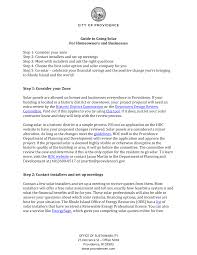
The lineman's job description varies from state to state, but it is generally based on the construction of electric transmission and distribution lines. This job involves installing and servicing these lines, as well as performing emergency repairs and maintenance. There are different salary levels and education requirements depending on the state. Below are details about this occupation as well as the education required to become an engineer. This career requires technical training and high school diplomas.
Occupational outlook
Lineman is a great choice if you are interested in a career within the electrical industry. Linemen are skilled in working with telephone and fiberoptic cables. In some cases, they may also be required to use lower voltage electricity. Linemen work in hazardous environments and must be able to stand for long periods of time. They should also have excellent interpersonal and problem-solving skills. Linemen who possess more experience are clearly better than less experienced workers.

The salary of a lineman can be very high but requires a high level of skill. To become a lineman, you'll need to complete a formal apprenticeship program. You'll spend your time working with an experienced lineman and will also learn safety procedures and how to use tools. Along with hands-on training, certifications are required.
Education Required
There are many reasons you might want to become a Lineman. You will help to construct and maintain electric transmission and distribution line. Lineworkers are responsible for installing, servicing, and repairing electric lines. Depending on the specific work you'll be doing, you'll also be responsible for making emergency repairs. This career is open to advancement, as you can gain experience. Below are some of the benefits you can expect when you become a lineworker.
Although linemen don't have to hold a college degree or equivalent, most employers require that they have a high school diploma, or the equivalent, and a passing grade of algebra. A paid four-year apprenticeship for apprentice linemen can also be done. It includes both on-the-job and classroom training. A degree in line construction or electrical safety can be helpful. Linemen can often apply for a position as a journeyman after completing this training.
Salary range
According to TurboTax data 289 users, the salary range of a Lineman is $82,750 to $92,364. These figures include taxable salaries, tips, bonuses, and other compensation. The total pay for a Lineman can vary widely depending on experience and location. Salaries can vary depending on the employer and where they are located. Here is an example of the compensation package for a lineman.

The National Football League employs linemen, who are responsible for protecting the quarterback. The linemen's salary varies depending on their experience and level of responsibility. Linemen play a vital role in protecting the quarterback and also help with blocking. A typical line configuration comprises a centre, two guards (or two tackles), two tackles and one or two tight ends. The salary range for linemen depends on their experience level and the team they work for.
FAQ
What documents do I need to show when applying for building permission?
You will also need to show proof of your SCA.
-
Visitors have ample parking space.
-
They are also suitable for those who need to access them.
-
Access to all utilities is possible
-
All works must be in compliance with all applicable planning regulations.
How much does it take to get building permission?
It depends on the state you are in and the complexity of the proposal. It will also depend on whether permission is being sought to build or expand your house. You should expect to wait several months before everything is approved.
What happens if one party doesn't take their side of the deal?
Failure to keep your promises can result in the law permitting the other party to sue you and treat your promise as null. Damages include the amount owed in addition to interest, court costs, and legal expenses.
Statistics
- (1) Except as provided in paragraphs (a)(4) and (a)(8) of this section, if the estimated amount of the contract or subcontract is $10 million or more, the contracting officer shall request clearance from the appropriate OFCCP regional office before- (acquisition.gov)
- (3) The contracting officer may provide for a contract price adjustment based solely on a percentage rate determined by the contracting officer using a published economic indicator incorporated into the solicitation and resulting contract. (acquisition.gov)
- Depending on the client's trustworthiness and financial stability, a deposit is usually 10 to 50% of the total contract amount. (lawdepot.com)
- Don't take their anger personally, they are mad about the situation 99% of the time. (activatemylicense.com)
- (v) Place or places of performance of the prime contract and first-tier subcontracts estimated at $10 million or more, if known. (acquisition.gov)
External Links
How To
How can I get started with the negotiation of my first service arrangement?
It can be daunting to negotiate the terms of a service agreement.
However, it does not have to be difficult for you to negotiate the terms of your first contract.
It all comes down to how prepared you are.
Before you begin negotiations, it is important to understand the terms and condition of your first service arrangement.
You should, for example, know exactly what you will do to the customer.
It is important to know what the customer expects of you.
Once you have a clear idea of what you will provide, you can start preparing for negotiation.
The more information you have the better prepared you will be when you sit down with the other party.